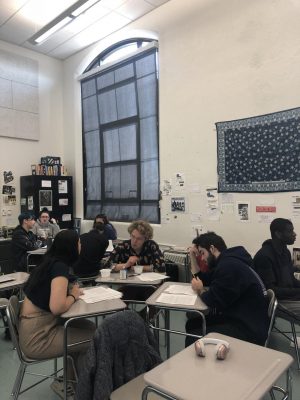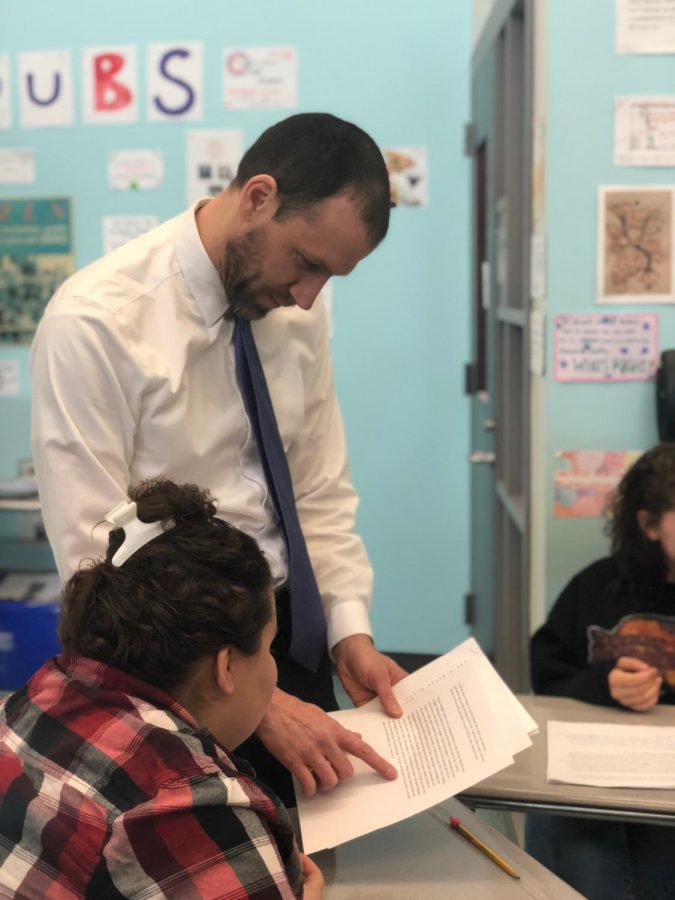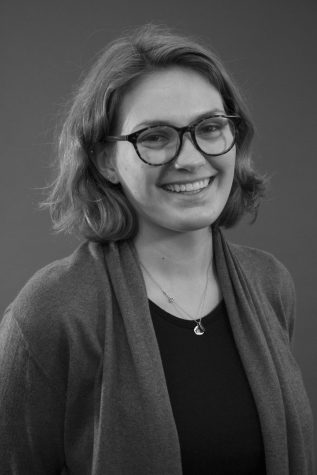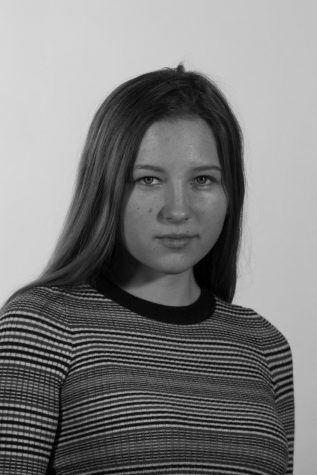Living the Questions at CRLS
Immersion Journalism Now an English Elective
April 25, 2018
“Whether it’s a sugar withdrawal or holding hands with somebody—I like the idea of trying new stuff. And this class kind of explores that, so it made me want to take it,” said senior Aziz Rifai. The class he refers to is Immersion Journalism, a new elective taught this semester by English teacher Mr. Jordan.
According to Mr. Jordan, immersion journalism is “a type of journalism where you put your own self through an experiment.” He cited Super Size Me—a documentary in which a man eats only McDonald’s food for a month—as an example.
Mr. Jordan has taught related courses elsewhere and worked with CRLS students on specific immersion journalism projects, but this semester is the first time there is a full class at Rindge dedicated to the subject.

The class is structured around different “experiments.” Students take notes while doing an experiment, and they also research and discuss experiments with the class. A CRLS immersion journalism website chronicles the experiences of students in the class through blog posts.
“We have these foundational quotes, and there’s one from [poet] Rainer Maria Rilke about how you have to live the questions, and then you hopefully live into the answer,” said Mr. Jordan. He added that the idea is to “live the questions instead of just studying them.”
Sophomore Zelda Mayer said she didn’t know anything about immersion journalism before this semester. When she overheard Mr. Jordan talking about the class, she decided to sign up because he sounded “so passionate about it.” Now that she has experienced part of a semester in the class, Mayer noted, “It exercises a lot of willpower, which I think is interesting.”
Mayer added that something she likes about the class is being able to try something new that she didn’t feel like she could do on her own before. “You can turn it into an experiment and then have someone to hold you accountable against it,” she said.
In addition to living the questions instead of “studying other people’s work,” Mr. Jordan explained that the class offers students the opportunity to test their ability to change. “Rilke says, ‘You must change your life.’ So if anybody thinks that they want to be different or live differently, this [class] gives you a little taste of how you might live differently, [and] you see what the results are,” said Mr. Jordan.
He added, “If there’s something that seems like it makes your life legitimately better, you now have a taste of it and can sort of live that way. So there’s real potential for real personal change.”
Senior Katya Hasset, who designs and maintains the immersion journalism website, commented, “I think [for] a lot of the ideas and the experiments we’re doing, a lot of people want to try them. A lot of people want to cut out sugar or want to see what it’s like to go a day without their cell phone.”
She continued, “Technology is a way to see these experiments take place when people do them, and then people can see the results and see if it’s something they’re interested in, or see if it’s something that’s sustainable that people can actually do.” Those who are interested are encouraged to contribute to the blog, regardless of whether they are enrolled in Mr. Jordan’s class.
Rifai said he already plans to continue doing experiments after the course ends. “It teaches you to push yourself outside your comfort zone—not too much, but the perfect amount,” he explained.
To follow students’ experiments this semester, click here.
This piece also appears in our March/April print edition.











